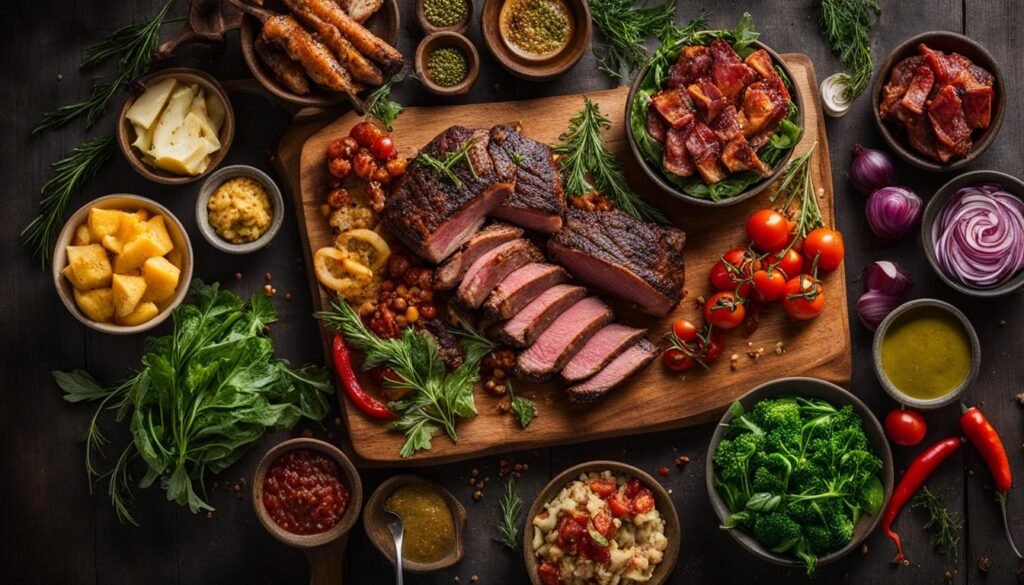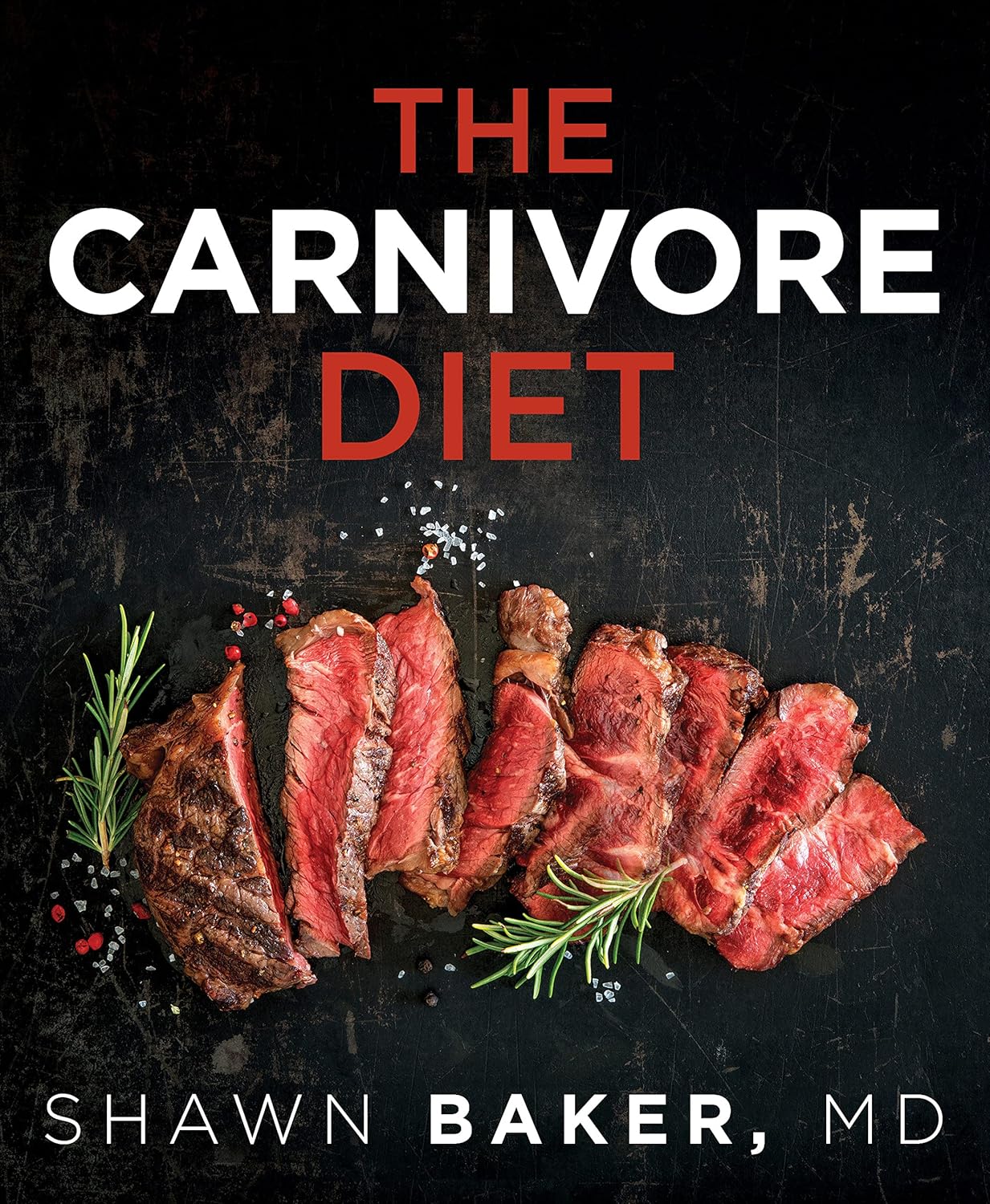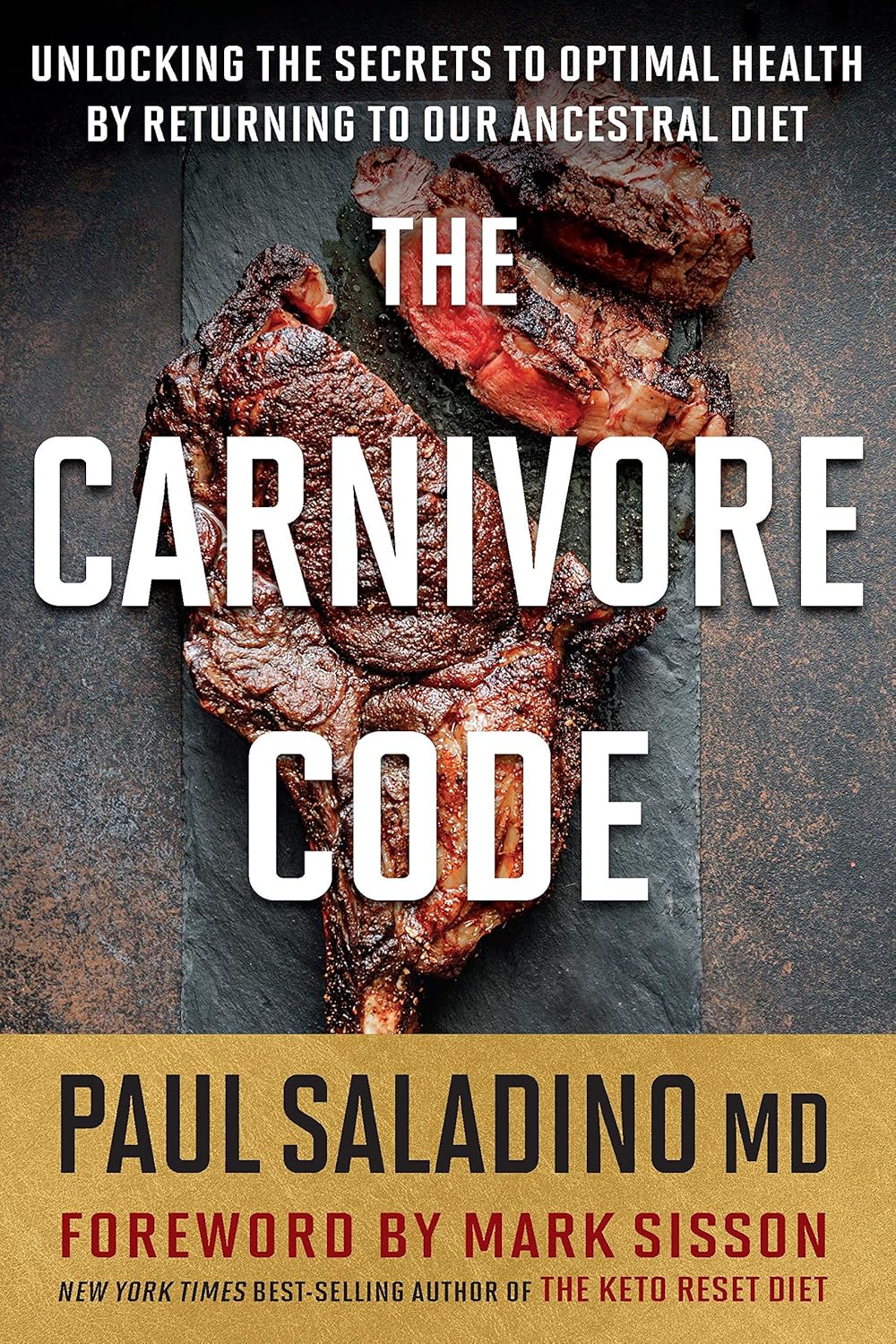Get our FREE E-Book HERE - 120 TIPS for Losing Weight & Bonus Tips for Postpartum Weight Loss & Dad’s Postpartum Experience
Exploring the Carnivore Diet: Benefits & Tips

Are you looking for a new approach to improve your health and well-being? The carnivore diet is gaining popularity as an innovative dietary method that focuses on animal-based foods. In this article, we will explore the carnivore diet in detail, highlighting its numerous benefits and offering valuable tips for those interested in following this eating pattern.
So, what is the carnivore diet? Basically, it is a way of eating that eliminates all plant-based foods and focuses solely on animal products. By introducing a higher intake of protein and healthy fats, this diet aims to optimize weight management, boost energy levels, and enhance mental clarity.
Additionally, the potential carnivore diet benefits for athletes and can be utilized as a tool for weight loss.

Starting an only-meat diet may seem overwhelming, but with the right guidance, it can be a rewarding journey. We will provide practical tips on how to transition to a carnivore diet, including meal planning, grocery shopping, and cooking techniques.
We will also address potential risks and challenges associated with this eating pattern and offer advice on how to overcome them.
Are you curious about what you can eat on a carnivore diet? We will provide a comprehensive food list, outlining the animal-based foods that are compatible with this dietary approach. Additionally, we will share a collection of simple and satisfying carnivore diet recipes to inspire your meals.
By the end of this article, you will have a thorough understanding of the meat based diet and be equipped with the knowledge and insights necessary to decide if it is the right choice for you.
Key Takeaways on the Carnivore Diet:
- It focuses on consuming only animal-based foods, eliminating all plant-based foods.
- It has potential benefits for weight management, energy levels, and mental clarity.
- Starting it requires planning, including meal preparation and grocery shopping.
- Potential challenges of it include nutritional imbalances and long-term sustainability.
- A carnivore diet meal plan should prioritize animal proteins and healthy fats.
What is the Carnivore Diet?
In this section, we will explore the fundamental meat based diet guidelines. We’ll discuss the evolutionary backdrop that supports the idea of humans being adapted to a carnivorous eating pattern.
Additionally, we’ll provide a comprehensive carnivore diet food list, highlighting the primary animal-based foods that are consumed on this diet. Lastly, we’ll explain the philosophy behind the zero-carb nature of the carnivore diet and its potential benefits.
The Evolutionary Backdrop of Carnivorous Eating
This diet diet draws inspiration from the evolutionary history of humans. Our ancestors were hunter-gatherers who relied heavily on animal foods for sustenance. This adaptation to a carnivorous eating pattern has shaped our biology, and proponents of the diet argue that it aligns with our genetic makeup.
Supporters of the diet believe that our ancestors’ consumption of animal foods provided essential nutrients, such as protein, vitamins, and minerals, which supported their overall health and well-being. They argue that by emulating this traditional way of eating, individuals can optimize their nutrition and potentially achieve improved health outcomes.
Carnivore Diet Food List: What’s on the Table?
The carnivore diet food list primarily consists of animal-based foods, with little or no plant-based foods included. The food list typically includes:
- Fresh or preserved meats, such as beef, pork, lamb, and game meats
- Organ meats, including liver, heart, and kidneys
- Poultry, such as chicken, turkey, and duck
- Fatty fish, like salmon, mackerel, and sardines
- Eggs
- Dairy products, such as cheese and butter (optional, as some individuals choose to exclude dairy)
By focusing on animal-based foods, this diet aims to provide high-quality protein, essential fats, and important micronutrients.
The Zero-Carb Philosophy
One of the distinctive features of the meat based diet is its emphasis on avoiding carbohydrates. The philosophy behind this zero-carb approach is rooted in the belief that excessive carbohydrate consumption can lead to various health issues, such as inflammation, insulin resistance, and weight gain.
By removing carbohydrates from the diet, the diet aims to promote fat-burning and metabolic flexibility. Proponents argue that this can lead to improved energy levels, stable blood sugar levels, and enhanced mental clarity.
It’s important to emphasize that this is an animal-based diet and not necessarily a ketogenic diet. While some individuals on it may naturally enter a state of ketosis due to the absence of carbohydrates, there is no strict requirement to monitor or achieve ketosis on this eating plan.
With a clear understanding of the diet’s fundamentals, let’s continue to explore the practical steps and considerations involved in starting a carnivore diet plan in the next section.
How to Start a Carnivore Diet Plan
Are you ready to embark on a meat based diet and reap its potential benefits? Transitioning to a new dietary approach can be intimidating, but with the right guidance, you can confidently start your carnivore diet plan. In this section, we will walk you through the steps to begin your carnivore journey, offer tips to overcome potential challenges, and provide recommendations for meal planning, grocery shopping, and cooking techniques that align with the carnivore diet guidelines and principles.
Before diving into the carnivorous eating pattern, it’s important to understand that transitioning from a standard diet to this diet may require some adjustments. It’s recommended to start gradually and allow your body to adapt to the change. Begin by gradually reducing your intake of carbohydrates and plant-based foods while increasing your consumption of animal-based proteins and fats.
Here are some tips to help you start your carnivore diet plan:
- Consult with a healthcare professional: Before starting any new dietary approach, it’s always advisable to consult with a healthcare professional, especially if you have any underlying health conditions or concerns.
- Educate yourself: Take the time to learn about the diet, its principles, and potential benefits. Understand the science behind it and familiarize yourself with the foods that are allowed and those that should be avoided.
- Plan your meals: Meal planning is a crucial step in successfully following this meat based diet. Create a weekly meal plan and decide on the types of animal-based foods you will include in each meal. This will help you stay on track and ensure you are meeting your nutritional needs.
- Stock up on carnivore-friendly foods: When grocery shopping, focus on purchasing high-quality animal-based foods such as beef, poultry, fish, and eggs. Opt for grass-fed, organic, and wild-caught options whenever possible.
- Experiment with cooking techniques: Get creative in the kitchen by trying out different cooking techniques to prepare your carnivore meals. Explore grilling, roasting, broiling, and sautéing methods to add variety and enhance flavors.
Remember, each individual is unique, and what works for one person may not work for another. It’s essential to listen to your body and make adjustments as needed. If you have any concerns or experience any adverse effects, consult with a healthcare professional.
By following these tips and recommendations, you will be well-prepared to start your carnivore diet plan. Embrace the journey and stay committed to your health and wellness goals.
Investigating Carnivore Diet Benefits
In this section, we will explore the potential benefits of carnivore diet. By following a carnivore diet, individuals may experience positive effects on weight management, metabolic health, energy levels, and mental clarity.
Impact on Weight Management and Fat Loss
The carnivore diet has gained popularity among individuals seeking weight management and fat loss. By eliminating carbohydrates and focusing on animal-based foods, the meat based diet may lead to reduced calorie intake and improved satiety, potentially resulting in weight loss. Additionally, the high protein content in the diet can help preserve muscle mass during weight loss.
Improvements in Metabolic Health
The diet may have positive effects on metabolic health indicators, such as blood sugar control and cholesterol levels. By eliminating processed foods and carbohydrates, it promotes stable blood sugar levels and can lead to improvements in insulin sensitivity. Moreover, the diet’s emphasis on nutrient-dense animal-based foods may contribute to favorable cholesterol profiles.
Enhanced Energy and Mental Clarity
Many individuals report increased energy levels and improved mental clarity when following an animal based diet. The elimination of carbohydrates can lead to stable blood sugar levels, preventing energy crashes and promoting sustained energy throughout the day. Furthermore, the nutrient-dense nature of animal-based foods provides essential nutrients for optimal brain function, potentially enhancing mental clarity and focus.

Carnivore Diet Meal Plan: Crafting Your Daily Eats
In this section, we will provide a comprehensive carnivore diet meal plan that will help you navigate your daily meals successfully. Whether you’re new to this diet or looking for some fresh ideas, our sample meal plan and delicious recipes will inspire you to create satisfying dishes that align with the principles of this unique eating approach.
When following this diet, the focus is on consuming animal-based foods. Therefore, our meal plan will include breakfast, lunch, dinner, and snack ideas that primarily consist of high-quality meats, including beef, poultry, pork, and seafood. These protein-rich meals will keep you satiated and energized throughout the day.
Start your day with a hearty and satisfying breakfast like a steak and eggs combo. Grill a juicy ribeye steak and serve it alongside a couple of sunny-side-up eggs. This protein-packed meal will kickstart your day on a delicious note.
For lunch, enjoy a grilled chicken salad. Toss some grilled chicken breasts with fresh lettuce, cherry tomatoes, cucumber, and your favorite low-carb dressing. This light and refreshing salad will keep you full without weighing you down.
When it comes to dinner, go for a juicy bacon-wrapped salmon fillet. Wrap the salmon with crispy bacon and bake it in the oven until perfectly cooked. Pair it with a side of buttered asparagus or roasted vegetables for a complete and satisfying meal.
And for a satisfying snack, indulge in some beef jerky. Made from lean cuts of beef, jerky provides a flavorful and protein-packed snack that will keep you satiated between meals.
Remember, this diet is all about simplifying your food choices and focusing on nutrient-dense animal-based foods. Our meal plan provides a variety of options to help you stay on track and enjoy a delicious carnivorous eating experience.
“The carnivore diet meal plan provides a variety of options to help you enjoy a delicious carnivorous eating experience.”
In this section, we will address the potential risks and challenges associated with this meat based diet. While this diet has gained popularity for its simplicity and potential benefits, it is important to be aware of the potential health concerns and nutritional imbalances that may arise from excluding plant-based foods.
By understanding these risks, individuals can make informed decisions about the long-term sustainability of the diet and its impact on overall health and well-being.
Nutritional Imbalances and Health Concerns
One of the primary concerns with this meat based diet is the potential for nutritional imbalances. A diet that completely eliminates plant-based foods can lead to deficiencies in essential nutrients such as fiber, vitamins, and minerals.
Fiber, for example, plays a crucial role in maintaining digestive health and regulating blood sugar levels. Without an adequate intake of fiber, individuals may experience constipation and an increased risk of chronic diseases such as heart disease and diabetes.
In addition to potential nutritional imbalances, there are also health concerns associated with the carnivore diet. The exclusion of plant-based foods means missing out on the protective compounds found in fruits, vegetables, and whole grains.
These compounds, such as antioxidants and phytochemicals, have been shown to reduce the risk of chronic diseases and promote overall health. Furthermore, the high intake of animal-based foods on the carnivore diet may increase the risk of certain health conditions such as heart disease and certain types of cancer.
Examining Long-term Sustainability
Another aspect to consider when following this diet is its long-term sustainability. While short-term studies have shown potential benefits, there is limited research on the long-term effects of this dietary approach. The restriction of food groups on the carnivore diet may lead to difficulties in meeting nutritional needs and long-term adherence.
It is also worth noting that the carnivore diet may not be practical or sustainable for individuals with ethical concerns regarding animal welfare or those who prefer a more varied diet. Moreover, the social and cultural aspects of eating may be impacted when following a restrictive diet, potentially leading to feelings of isolation or exclusion in social settings.
Considering these potential risks and challenges is crucial when deciding if this diet is suitable for you. It’s important to consult with a registered dietitian or healthcare professional who can provide personalized guidance and support to ensure nutritional adequacy and manage potential health risks.

Carnivore Diet Food List: What to Eat and Avoid
In this section, we will provide a detailed carnivore diet food list, highlighting the foods that are recommended to eat and those that should be avoided. Whether you’re new to this diet or looking to expand your food choices, this comprehensive guide will help you make informed decisions about what to include in your carnivorous eating plan.
Foods to Eat on the Carnivore Diet
On the carnivore diet, the main focus is on animal-based foods. Here are some key foods that you can enjoy while following this dietary approach:
- Fresh, unprocessed meats such as beef, pork, lamb, and poultry
- Organ meats like liver, kidney, and heart which are highly nutritious
- Fatty fish like salmon, sardines, and mackerel for a healthy dose of omega-3 fatty acids
- Eggs, a versatile and nutrient-dense option
- Dairy products like full-fat cheese and butter (if tolerated)
These animal-based foods provide essential nutrients like protein, healthy fats, vitamins, and minerals to support your overall health.
Neutral Foods on the Carnivore Diet
In addition to the primary animal-based foods, some individuals include certain neutral foods in their carnivore diet. Although these foods are derived from plants, they are generally low in anti-nutrients and can be well tolerated by some carnivore dieters. Here are some examples of neutral foods:
- Avocado, a source of healthy monounsaturated fats
- Olives and olive oil, providing beneficial polyphenols
- Salt, to enhance flavor and provide essential minerals
- Spices and herbs, adding variety and taste to your meals
While these foods may be included in limited quantities, it’s important to listen to your body and determine what works best for you within the carnivore framework.
Foods to Avoid on the Carnivore Diet
To adhere to the principles of the carnivore diet, it’s important to avoid certain foods that are not animal-based. Here are the foods that you should avoid:
- Grains and cereal products like rice, wheat, oats, and corn
- Legumes such as beans, lentils, and chickpeas
- Fruits and vegetables, as they are not part of the carnivore eating pattern
- Sugar and sweeteners, including honey, maple syrup, and artificial sweeteners
- Processed foods and snacks, which often contain additives and preservatives
By eliminating these foods from your diet, you can fully experience the carnivorous benefits of the carnivore diet.

By the end of this section, you will have a clear understanding of what foods are suitable and recommended for the carnivore diet. With this knowledge, you can confidently create your own carnivore diet meal plans and enjoy the health benefits that this eating pattern can offer.
Carnivore Diet for Athletes: Performance and Recovery
Athletes are always striving to optimize their performance and enhance their recovery. The carnivore diet, with its emphasis on animal proteins, has gained popularity among athletes looking to fuel their high-intensity training and improve their overall performance.
Fueling High-Intensity Training with Animal Proteins
The carnivore diet for athletes provides a rich source of high-quality animal proteins, which are essential for muscle repair, growth, and recovery. By consuming ample amounts of protein, athletes following a carnivore diet can support their athletic performance and promote lean muscle mass development.
Animal proteins are also known for their high bioavailability, meaning that they are easily digested and absorbed by the body. This allows for efficient utilization of the amino acids present in animal proteins, which are the building blocks of muscle tissue.
Recovery Strategies on an All-Meat Diet
Recovery is a crucial aspect of an athlete’s training regimen. Adequate recovery enables muscles to repair and adapt, leading to improved performance over time. On an all-meat diet, athletes can optimize their recovery by focusing on nutrient-dense animal foods.
Animal proteins contain essential amino acids, which play a vital role in muscle recovery and growth. Additionally, animal fats provide a concentrated source of energy and can contribute to replenishing glycogen stores after intense workouts.
It’s important for athletes on a carnivore diet to pay attention to hydration and electrolyte balance, as reducing carbohydrate intake may impact fluid and electrolyte levels. Proper hydration and electrolyte management are essential for optimal performance and recovery.
By following recovery strategies specific to the carnivore diet, athletes can support their body’s adaptation to training and enhance their overall recovery process.
In conclusion, the carnivore diet can be a viable dietary approach for athletes seeking to optimize their performance and recovery. With its emphasis on animal proteins and nutrient-dense foods, the carnivore diet provides athletes with the necessary fuel to excel in high-intensity training while promoting efficient muscle recovery.
The Carnivore Diet Approach to Weight Loss
In this section, we will delve into the carnivore diet weight loss approach. Many people are turning to the carnivore diet as a way to shed pounds and achieve their weight loss goals. But how does this diet work, and what are the mechanisms behind weight loss on a carnivore diet? Let’s find out.
The carnivore diet is a high-fat, moderate-protein, and low-carb diet that focuses on consuming animal-based foods such as meat, fish, and poultry. By eliminating all plant-based foods, the carnivore diet aims to optimize nutrient intake and promote weight loss.
One of the main reasons why the carnivore diet for weight loss is effective is due to the elimination of processed and high-carbohydrate foods. By cutting out foods that are high in sugar and carbohydrates, the body switches to burning stored fat for energy, resulting in losing weight on a carnivore diet.
The high protein content of the carnivore diet also plays a role in weight loss. Protein is known to increase satiety and help preserve lean muscle mass, which is essential for a healthy metabolism. By increasing protein intake, individuals on the carnivore diet may feel fuller for longer and naturally reduce their calorie intake.
Furthermore, the carnivore diet can regulate insulin levels, which can have a positive impact on weight management. With minimal carbohydrate intake, the body’s insulin response is reduced, preventing insulin spikes that can lead to weight gain and fat storage.
It is important to note that while the carnivore diet may result in initial weight loss, individual results may vary. The success of weight loss on a carnivore diet depends on various factors, including overall calorie intake, activity level, and individual metabolism.
In conclusion, the carnivore diet can be an effective tool for weight loss. By eliminating carbohydrates and focusing on animal-based foods, individuals can achieve their weight loss goals while following the carnivore diet approach. However, it is essential to consult with a healthcare professional before starting any new diet to ensure it aligns with individual health needs.
Carnivore Diet Recipes: Simple and Satisfying Ideas
In this section, we will provide a collection of simple and satisfying carnivore diet recipes. Whether you’re looking for easy-to-prepare breakfast options or filling dinner ideas, we’ve got you covered with delicious recipes that align with the principles of the carnivore diet.
Easy-to-Prepare Carnivore Diet Breakfasts
Start your day off right with these easy-to-prepare carnivore diet breakfasts. They are packed with protein and will provide you with the energy you need to tackle the day ahead.
- Wake up to a hearty plate of bacon and eggs. Fry the bacon until crispy and cook the eggs to your liking. Enjoy this classic breakfast combination that satisfies your carnivorous cravings.
- Create a simple steak and eggs breakfast. Cook a juicy steak to your preferred doneness and pair it with fried or scrambled eggs for a protein-packed morning meal.
- Indulge in a delicious sausage and cheese omelet. Cook the sausage until browned and combine it with beaten eggs and shredded cheese. Cook the mixture in a pan until the eggs are set and the cheese is melted.
Filling Dinners: Sticking to Single-Ingredient Meals
For filling dinners that prioritize simplicity and flavor, try these single-ingredient meals that showcase the power of animal-based foods.
- Grill a juicy steak and pair it with a side of grilled vegetables for a satisfying and wholesome carnivore dinner.
- Roast a whole chicken and enjoy tender, flavorful meat. Serve it with a side of steamed broccoli or cauliflower for a well-rounded meal.
- Savor the taste of succulent grilled salmon. Pair it with a side of grilled asparagus or a salad for a nourishing and satisfying dinner.
With these simple and satisfying carnivore diet recipes, you’ll never run out of delicious meal ideas that keep you fueled and satisfied on your carnivore diet journey.
Conclusion: Is the Carnivore Diet Right for You?
After exploring the benefits, considerations, and potential risks of the carnivore diet, you may be wondering if this dietary approach is right for you. Let’s recap the key points discussed throughout this article to help you make an informed decision.
The carnivore diet, with its focus on animal-based foods, has gained popularity for its potential to support weight management, improve metabolic health, enhance energy levels, and promote mental clarity. Many individuals have reported experiencing positive results while following the carnivore diet.
However, it is important to consider the potential risks associated with the exclusion of plant-based foods and the long-term sustainability of this eating pattern. Nutritional imbalances and health concerns may arise from following a diet that eliminates certain food groups. Therefore, it is crucial to ensure you are obtaining essential nutrients and monitoring your health while on the carnivore diet.
Ultimately, the decision to try the carnivore diet should be based on your individual needs, preferences, and goals. It is essential to consult with a healthcare professional or registered dietitian before making any significant changes to your diet, especially if you have underlying health conditions or concerns.
With a comprehensive understanding of the carnivore diet and the insights gained from this article, you are now equipped to evaluate whether the carnivore diet aligns with your lifestyle and dietary goals. The carnivore diet may be an option worth exploring, but it is essential to approach it mindfully and with caution, ensuring you prioritize your health and well-being.
FAQ
What is the carnivore diet?
The carnivore diet is an eating pattern that involves consuming only animal-based foods and excludes all plant-based foods. It is based on the belief that humans are adapted to a carnivorous eating pattern and can thrive without consuming carbohydrates or plant foods.
What foods are allowed on the carnivore diet?
The primary foods allowed on the carnivore diet include meat, fish, eggs, and dairy products. Some individuals may choose to include small amounts of condiments, such as salt or spices, while others follow a strict zero-carb approach.
Is the carnivore diet beneficial for weight management?
The carnivore diet has been reported to aid in weight management and fat loss. This may be due to the elimination of carbohydrates and the potential impact on appetite regulation and metabolic processes.
Can the carnivore diet improve metabolic health?
Some individuals on the carnivore diet have reported improvements in metabolic health markers, such as blood sugar control and cholesterol levels. However, more research is needed to fully understand the long-term effects of this dietary approach.
How do I start a carnivore diet plan?
To start a carnivore diet plan, it is recommended to gradually transition from a standard diet by reducing carbohydrate intake and increasing animal-based food consumption. You may face challenges during the adjustment period, but with proper planning and guidance, you can successfully adopt a carnivore diet.
Are there any risks associated with the carnivore diet?
The carnivore diet may pose risks, including potential nutritional imbalances and health concerns due to the exclusion of plant-based foods. It is important to ensure you are obtaining essential nutrients and monitoring your health while following this dietary approach.
What are some examples of carnivore diet recipes?
There are many simple and satisfying carnivore diet recipes available. For breakfast, you can enjoy bacon and eggs or a steak omelet. For dinner, grilled steak or baked salmon can be served with a side of buttered vegetables. The possibilities are endless when it comes to creating delicious meals within the carnivore diet framework.
Is the carnivore diet suitable for athletes?
The carnivore diet can potentially benefit athletes by providing ample protein and fuel for high-intensity training. Animal proteins can aid in muscle recovery and growth. However, it is important to consult with a healthcare professional or sports nutritionist to ensure you are meeting your specific nutritional needs.
Can the carnivore diet be used for weight loss?
The carnivore diet has been used by some individuals as a tool for weight loss. By eliminating carbohydrates and focusing on nutrient-dense animal-based foods, some people may experience weight loss. However, individual results may vary, and it is essential to listen to your body and make sustainable choices.
How can I incorporate the carnivore diet into my lifestyle?
If you are interested in incorporating the carnivore diet into your lifestyle, it is important to gather practical information and consider if it aligns with your personal goals and values. Consulting with a healthcare professional or registered dietitian can provide you with guidance tailored to your specific needs and preferences.
Where can I find more information about the Carnivore Diet ? Are there any books you recommend?
Usually, we give out our top pick but for this diet we couldn’t just pick one, as our absolute best choice.
The first book we strongly recommend is The Carnivore Diet, by Dr. Shawn Baker. This book goes though all the supporting evolutionary, historical, and nutritional science that gives us clues as to why so many people are having great success with this diet. He demonstrates a comprehensive strategy for incorporating the Diet as a tool or a lifelong eating style and he discusses some of the most common misconceptions about this diet and the problems people might have when transitioning to it.
With an Amazon Star Rating of 4.7 and over 4,000 review ratings you can’t go wrong.

Our second choice is The Carnivore Code, by Paul Saladino MD. Dr Saladino, who is a New York Times best selling author, offers a different point of view than Dr. Baker. Dr. Saladino presents scientific evidence and personal insights supporting an all-meat approach for improved health. The book addresses common concerns, debunks myths, and encourages reconsideration of our relationship with plant foods. It’s a concise guide that explores the potential benefits of a carnivore lifestyle, emphasizing metabolic health and overall well-being.

Don’t forget to check out our Resources page, which includes 7 different calculators you can use for FREE.
Download our FREE e-book HERE, which describes in detail 120 TIPS for Losing Weight & Bonus Tips for Postpartum Weight Loss & Dad’s Postpartum Experience








